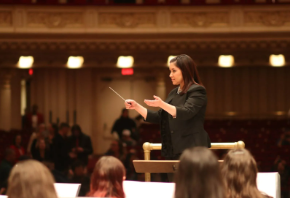Interview with Allison Lacasse: Music Education, Conducting, & Community.
- Sarah Kisin

- Jan 23, 2025
- 6 min read
Updated: Jan 26, 2025
Ms. Laccasse is the director of bands at BHS and has taught me for two years. In our conversation, we discussed music education, performance, conducting, and more!



